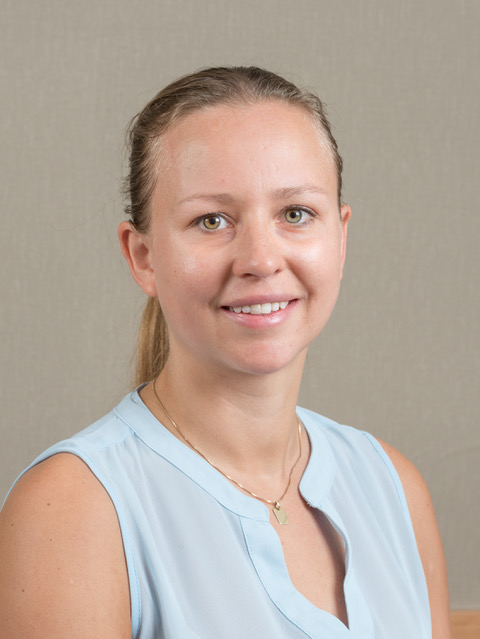Monday 17.6
Room: Amphithéâtre Robert Faure
09:00 – 09:15 Introduction and welcome by the chairs (Roland van Rijswijk-Deij and Cristel Pelsser)
09:15 – 10:45 Tutorial I (1) – Privacy in the Domain Name System (DNS)
Sara Dickinson, co-chair of the DNS Privacy Workshop and the proposed Privacy Enhancement and Assessment Research Group (PEARG) in the IRTF.

Bio: Sara has worked in a number of different industries over the past 20 years as a systems analyst, software developer and project manager. In 2010 she co-founded Sinodun IT – a small UK based consultancy focussing on R&D, Open standards and open source software and all things DNS and DNSSEC. She is an active participant in the IETF and is the author of several DNS related RFCs.
She is now actively involved in efforts to promote DNS Privacy via the dnsprivacy.org project and is a contributor to the getdns and Stubby projects. Sara is a co-chair of the DNS Privacy Workshop and the proposed Privacy Enhancement and Assessment Research Group (PEARG) in the IRTF.
10:45 – 11:15 Coffee Break – Poster Session (Group 1)
- DNS Traffic Forecasting for Fast Anomaly Detection Using Deep Neural Networks
Diego Madariaga, University of Chile / NICLabs, Chile - SmartDBO: Smart Docker Benchmarking Orchestrator for Web-application
Devki Nandan Jha, Newcastle University, United Kingdom - Trust and Reputation Systems to Assess Resilience Management in Softwarized Networks
Diamanti Alessio, Orange Labs/CNAM, France - Are Darknets All The Same? On Darknet Visibility for Security Monitoring
Francesca Soro, Politecnico de Torino, Italy - Oblivious routing: static routing prepared against network traffic and link failures
Thibaut Cuvelier, Orange Labs/CentralSupElec, France - 5G network design: Modeling and Optimization
Wesley da Silva Coelho, Orange Labs/CNAM, France - Routing Inconsistencies at the FIB level
Julian Martin del Fiore, University of Strasbourg, France - Root Cause analysis and pattern discovery of faults using machine learning
Amine Echraibi, IMT Atlantique, France - Securing Workflows using the Microservice Architecture
Loïc Miller, University of Strasbourg France - EDNS classification: most common operational problems in DNS resolvers
Jeisson Sanchez, University of Chile / NICLabs, Chile - Steps Towards Explainable AI for Clustering: the Case of Unsupervised QoE Analysis for YouTube Encrypted Traffic
Andrea Morichetta, Politecnico de Torino, Italy - Going Beyond DiffServ in IP classification
Davide Aureli, Cnam, France
11:15 – 12:30 Tutorial I (2) – DNS Privacy in practice: labs with getdns, Stubby and Unbound
12:30 – 14:00 Lunch Break at Salon d’Honneur (Cnam)
14:00 – 15:30 Tutorial II (1) – Mobile Traffic Analysis: A Practical Approach
Narseo Vallina-Rodriguez, Assistant Research Professor at IMDEA Networks.
 Bio: Narseo Vallina-Rodriguez is an Assistant Research Professor at IMDEA Networks where he leads the Internet Analytics Group since 2016. His research interests fall in the area of network measurements, with an interest on privacy and security aspects of mobile networking. Narseo is also Research Scientist at the Networking and Security team at the International Computer Science Institute (ICSI) in Berkeley. Narseo completed his Ph.D. at the University of Cambridge. The outcome of his research has been awarded with a Qualcomm Innovation Fellowship in 2012, both the distinguished paper award and the community service Award at ACM IMC 2018, the IETF ANRP in 2016, and a best short-paper award at ACM CoNEXT’14. Narseo’s research in mobile privacy has been covered by international media, including New York Times, The Guardian, and Washington Post among many others.
Bio: Narseo Vallina-Rodriguez is an Assistant Research Professor at IMDEA Networks where he leads the Internet Analytics Group since 2016. His research interests fall in the area of network measurements, with an interest on privacy and security aspects of mobile networking. Narseo is also Research Scientist at the Networking and Security team at the International Computer Science Institute (ICSI) in Berkeley. Narseo completed his Ph.D. at the University of Cambridge. The outcome of his research has been awarded with a Qualcomm Innovation Fellowship in 2012, both the distinguished paper award and the community service Award at ACM IMC 2018, the IETF ANRP in 2016, and a best short-paper award at ACM CoNEXT’14. Narseo’s research in mobile privacy has been covered by international media, including New York Times, The Guardian, and Washington Post among many others.
15:30 – 16:00 Coffee Break – Poster Session (Group 1)
16:00 – 17:15 Tutorial II (2) – Hands-on with the Lumen Privacy Monitor
17:15 – 18:15 Interactive session with students and speakers
- Internet Measurements on EdgeNet
Kévin Vermeulen, Sorbonne, France - It’s Time to Lie: The DNS TTL Mismatch Problem
Raffaele Sommese, University of Twente, The Netherlands - Improving Stream-Based Active Learning by Reinforcement Learning
Sarah Wasserman, INRIA Paris, France - Toward Effective Mobile Encrypted Traffic Classification through Deep Learning
Antonio Montieri, University of Napoli Federico II, Italy - Exploiting Big Data for traffic management in SDN
Martino Trevisan, Politecnico de Torino, Italy - Split-and-Merge: detecting unknown botnets
Agathe Blaise, Thales/LIP6, France - Measuring the Delay Impact of DSCP in the Internet using FloodBox
Runa Barik, University of Oslo, Normay - Port and Net Scan: Detection with Apache Spark
Antonia Affinito, University of Napoli Federico II, Italy - Characterizing the Effects of Rapid LTE Deployment: A Data Driven Analysis
Kareem Abdullah, Alexandria University, Egypt - Measuring Industrial Communication Networks
Ike Kunze, RWTH Aachen, Germany - Finding long lasting BGP events and periodicities
Lorenzo Ariemma, Roma Tre University, Italia - DSTC: DNS-based Strict TLS Configurations
Eman Alashwali, University of Oxford
18:15 – 19:00 Time to drop off bags
19:30 – 22:00 Social dinner at Restaurant Georges, Centre Georges Pompidou
Tuesday 18.6
Room: Amphithéâtre Robert Faure
09:00 – 09:05 Welcome back by the chairs
09:05 – 10:30 Tutorial III (1) – Path Transparency: what is it, and why should we care?
Mirja Kühlewind, researcher at Ericsson Research in Aachen, Germany.

Bio: Mirja Kühlewind is currently a researcher at Ericsson Research in Aachen, Germany, focusing in her work on transport protocol evolution. Until February 2019, she worked as a Post-Doc at the Networked Systems Group (NSG) of the Computer Engineering and Networks Laboratory at ETH Zurich where she was the coordinator of the EU-H2020 MAMI project on “Measurement and Architecture for a Middlebox’ed Internet”. Mirja received her PhD in 2015 from the University of Stuttgart working in the field of TCP congestion control. Further, she serves, since March 2016, as an Area Director of the transport areas in the Internet Engineering Task Force (IETF). She is an author of multiple RFC including RFC6817 on Low Extra Delay Background Transport (LEDBAT) as well as RFC 7786 and RFC 7837 on Congestion Exposure (ConEx). Moreover, she is co-chair of the Measurements and Analysis for Protocols Research Group (maprg) in the Internet Research Task Force (IRTF).
10:30 – 11:00 Coffee Break
11:00 – 12:15 Tutorial III (2) – Path Transparency: hands-on with PATHspider
12:15 – 13:45 Lunch Break (on site)
12:45 – 13:45 Poster Session (Group 3)
- Mapping Latin American IXPs
Esteban Carisimo, University of Buenos Aires, Argentina - The Early Detection of Phishing Domains
Kaspar Hageman, Aalborg University, Denmark - Privacy compliant network monitoring probe
Thomas Favale, Politecnico de Torino, Italy - A Global Analysis of Commercial Anycast-based DNS Resolvers
Julien Gamba, IMDEA, Spain - An Age Control Transport Protocol for Delivering Fresh Updates in the Internet-of-Things
Tanya Shreedar,IIIT Delhi, India - Online Adaptive Ensemble-Learning for Network Measurements Analysis
Juan Vanerio, Universidad de la República Montevideo, Uruguay - Real-time Monitoring and Management of User Experience in a Self-Driving Network
Sharat Chandra Madanapalli, University of New South Wales/Sydney, Australia - Measuring Network Traffic and Application Behavior of Popular Smartphone Applications
Anika Schwind, University of Würzburg, Germany - Interactions between Congestion Control Algorithms
Belma Turkovic, TU Delft, The Netherlands - BGP hijacking classification
Shinyoung Cho, Stony Brook, United States of America - Measuring and Predicting the Performance of Cellular Links from the Edge
Ermias Walelgne, Aalto University, Finland
13:45 – 15:15 Tutorial IV (1) – RPKI: why we need it, what it is and how it works
Tim Bruijnzeels, senior software developer at NLnet Labs.
![]() Bio: Tim is a senior software developer at NLnet Labs. He has been involved RPKI standards development and software implementation for well over 10 years. A number of IETF RFCs related to RPKI carry his name. Tim first got involved in this work as a software developer for RIPE NCC. Later he became the lead technical project manager for various RIPE NCC services, with the strongest focus remaining on RPKI and the whois. Tim joined NLnet Labs in July 2018, and since then has been working on the development of a new open-source RPKI server implementation written in Rust, which is expected to be released late 2019: Krill.
Bio: Tim is a senior software developer at NLnet Labs. He has been involved RPKI standards development and software implementation for well over 10 years. A number of IETF RFCs related to RPKI carry his name. Tim first got involved in this work as a software developer for RIPE NCC. Later he became the lead technical project manager for various RIPE NCC services, with the strongest focus remaining on RPKI and the whois. Tim joined NLnet Labs in July 2018, and since then has been working on the development of a new open-source RPKI server implementation written in Rust, which is expected to be released late 2019: Krill.
In his spare time Tim likes to enjoy good restaurants, nature, and snowboarding. He has also tried to do some surfing. For the past couple of years however, most of his spare time is happily spent with his wife Sonia, and their two little boys: Benjamin and Tiuri.
15:15 – 15:45 Coffee Break
15:45 – 17:00 Tutorial IV (2) – Hands-on RPKI with the “Routinator 3000”
Martin Hoffmann, seasoned software developer at NLnet Labs.
Bio: Martin is a seasoned software developer with in-depth knowledge on DNS, inter-domain routing, cryptography and open standards. Among other responsibilities, he is the core developer of Routinator, NLnet Labs’ RPKI relying party software. Before joining NLnet Labs, Martin lived further up the stack, developing and operating the server side of real-time communication and VoIP services.
18:00 – 22:00 Museum visit and TMA welcome reception
